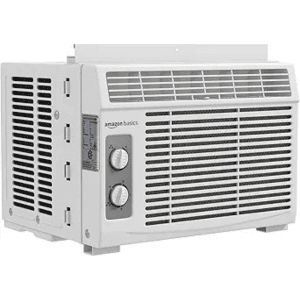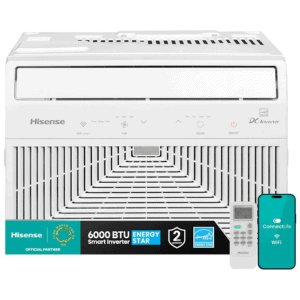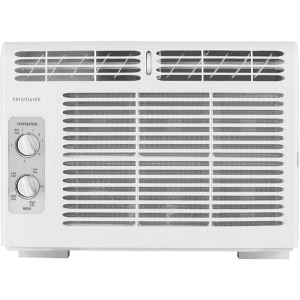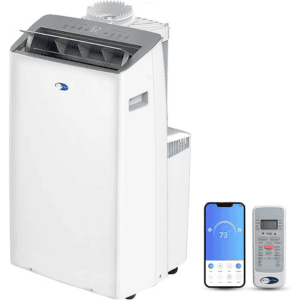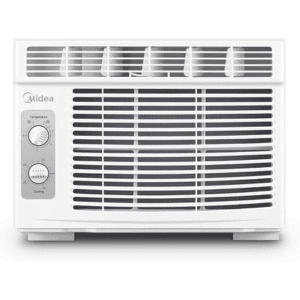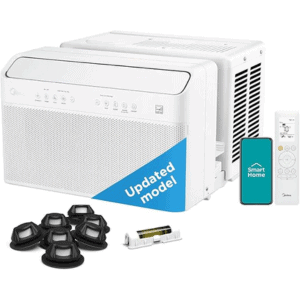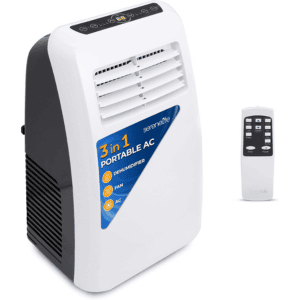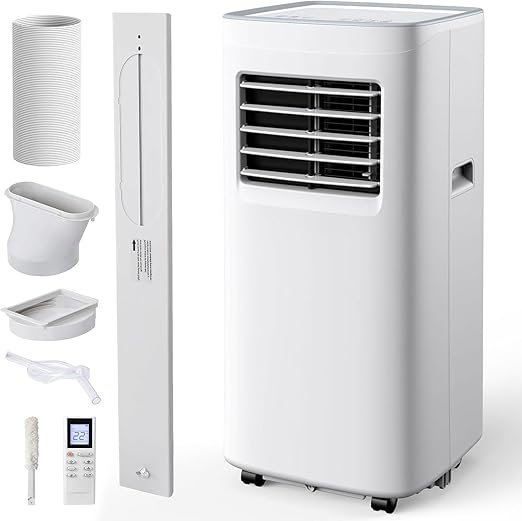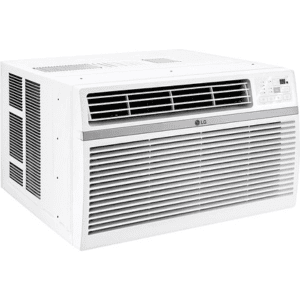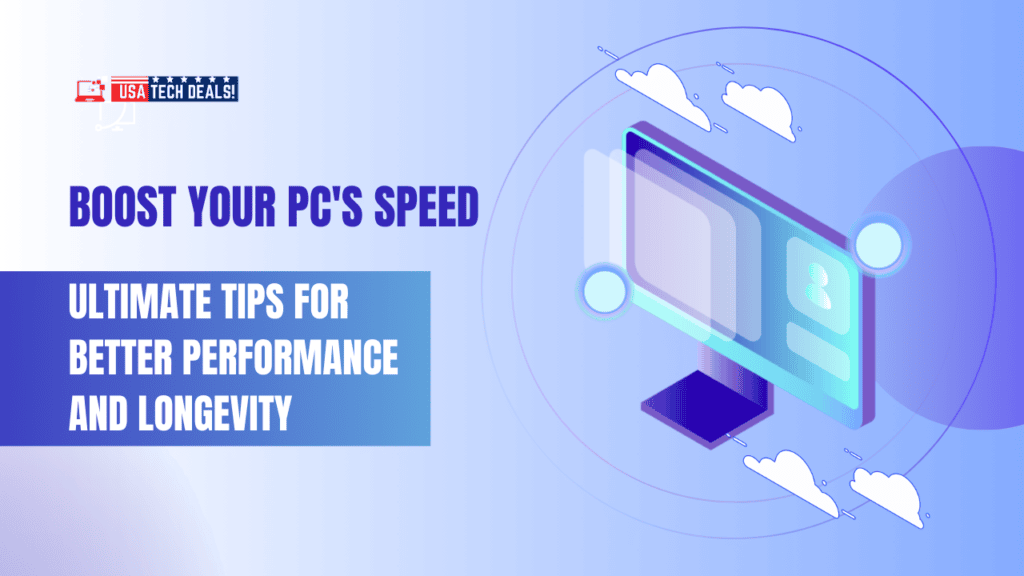Wondering how to choose air conditioner for home? No worries! We will make it easy for you.
When summer heat takes over, your home can quickly become unbearable without proper cooling.
A good air conditioner is no longer a luxury—it’s a necessity for comfort, health, and productivity.
But here’s the challenge: with so many options available, from window units to central cooling systems, how do you decide which one is the best for your home?
This complete guide will walk you through every detail—types of air conditioners, energy efficiency, sizing, features, installation, maintenance, and cost factors—so you can make a confident and informed choice.
Get ready to embrace the cool breeze—your dream air conditioning solution is just a few clicks away!
Table of Contents
ToggleWhy Air Conditioning is More Important Than You Think
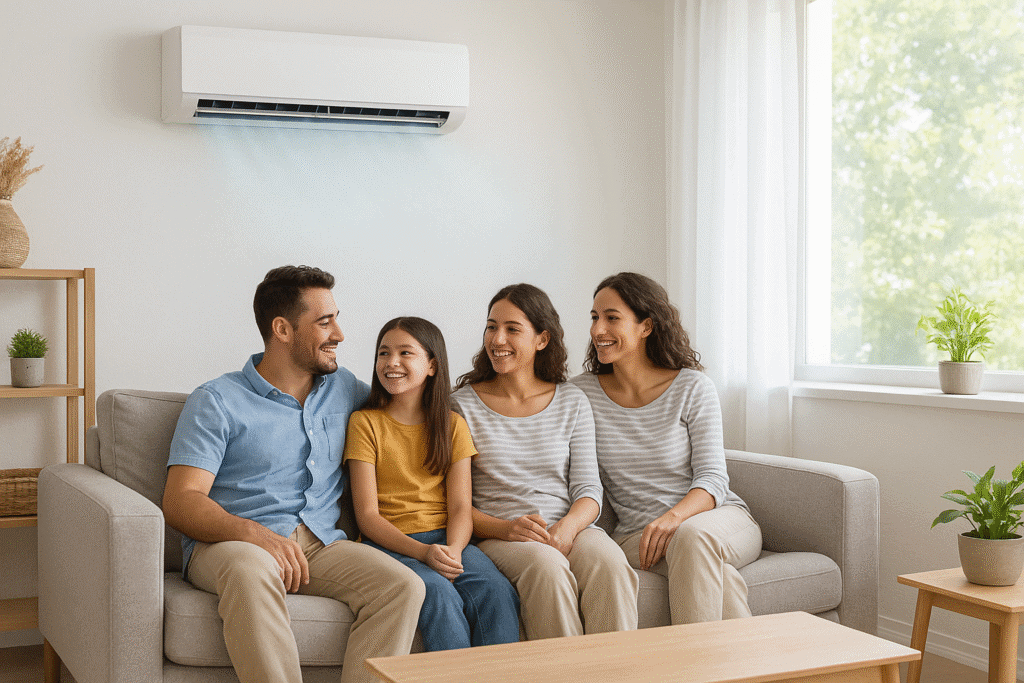
When people think of air conditioning, the first thought is comfort. But the importance of an air conditioner goes far beyond keeping you cool. Let’s explore why:
1. Health and Safety
Extreme heat can lead to dehydration, fatigue, and heatstroke. Children, elderly individuals, and people with existing health conditions are especially vulnerable. A well-functioning air conditioner regulates indoor temperature, preventing heat-related health issues.
2. Improved Indoor Air Quality
Most modern ACs come with built-in filters that trap dust, pollen, pet dander, and even harmful bacteria. This significantly reduces allergens in the air, making it easier to breathe—particularly beneficial for asthma and allergy sufferers.
3. Humidity Control
High humidity encourages mold growth and damages walls, furniture, and electronics. Air conditioners reduce humidity, creating a comfortable and healthier indoor environment.
4. Better Sleep and Productivity
A cooler room improves sleep quality. Similarly, a comfortable work environment helps improve focus and efficiency—something especially important for people working from home.
5. Protecting Home and Belongings
Uncontrolled heat and humidity can warp wooden furniture, damage electronics, and weaken walls. By maintaining stable indoor conditions, air conditioning safeguards your home and valuables.
👉 Clearly, air conditioning is not just about comfort—it’s about health, safety, and protection of your home.
Types of Air Conditioners: Choosing What Fits Your Lifestyle
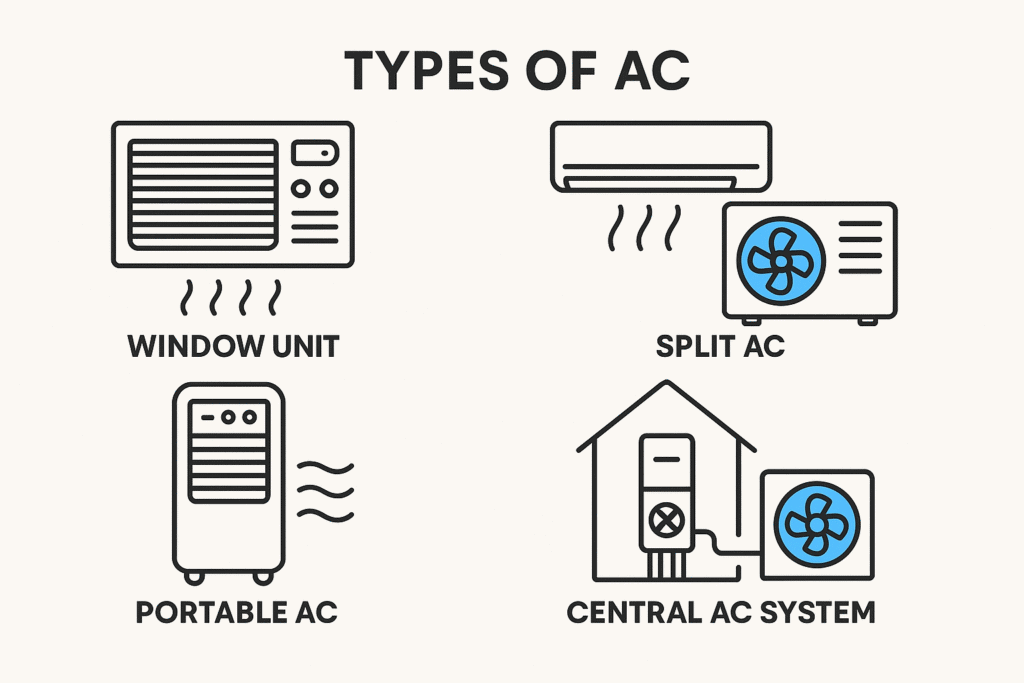
When it comes to buying an air conditioner, one size does not fit all. The “best” AC for you depends on your home layout, budget, and lifestyle.
To make the right choice, it’s important to understand the different types of air conditioners available, how they work, and who they’re best suited for. Let’s break them down:
1. Window Air Conditioners
A window AC is one of the oldest and most common cooling solutions. It’s a single, compact unit that fits into a standard window frame or a custom wall opening.
Why choose it?
Budget-friendly: Usually the most affordable option.
Easy to install and remove: Can be set up in minutes and removed in winter if not needed.
Effective for small rooms: Best for single bedrooms, study rooms, or small living spaces.
Considerations:
Blocks natural light and ventilation from the window.
Generally noisier than split ACs.
Not ideal for cooling large spaces or multiple rooms.
👉 Best for students, renters, or families looking for an economical way to cool a small space.
2. Split (Ductless) Air Conditioners
A split AC comes in two parts:
An indoor unit mounted on the wall inside the room.
An outdoor compressor unit installed outside the house.
These two are connected by pipes that circulate refrigerant.
Why choose it?
Quiet operation: The noisy compressor stays outdoors.
Stylish design: Sleek indoor units that blend with home interiors.
Energy-efficient: Especially models with inverter technology.
Flexible cooling: Can add multiple indoor units (multi-split) for different rooms.
Considerations:
Higher upfront cost compared to window ACs.
Requires professional installation.
Outdoor space is necessary for the compressor.
👉 Best for homeowners or families wanting efficient, quiet, and long-term cooling for bedrooms and living rooms.
3. Central Air Conditioning
A central AC system is a whole-house solution. It works by cooling air in a central unit and distributing it throughout the home via ducts and vents.
Why choose it?
Uniform cooling: Maintains the same temperature across all rooms.
Increases property value: Seen as a premium feature in homes.
Smart compatibility: Works seamlessly with thermostats for better energy control.
Considerations:
Very high installation and maintenance costs.
Requires ductwork, which may not be practical for older homes.
Higher energy usage if not properly maintained.
👉 Best for homeowners with larger houses who want consistent cooling in every room and plan to stay long-term.
4. Portable Air Conditioners
A portable AC is a self-contained unit on wheels. It pulls in hot air, cools it, and then expels warm exhaust air outside through a window hose.
Why choose it?
No permanent installation: Just plug it in and set the exhaust pipe through a window.
Mobility: Can be moved from room to room.
Ideal for rentals: Perfect if you can’t install a permanent AC.
Considerations:
Less efficient than split or window units.
Can be noisy since the compressor is inside the room.
Needs regular draining of collected moisture.
👉 Best for tenants, temporary setups, or people who need flexible cooling without permanent installation.
5. Hybrid Air Conditioners
Hybrid ACs can switch between electricity and fossil fuel (like gas) for power. This flexibility helps save energy and reduce costs, especially in areas with high electricity rates.
Why choose it?
Energy savings: Automatically chooses the most cost-effective power source.
Environmentally friendly: Reduced energy consumption lowers your carbon footprint.
Considerations:
Higher initial cost.
Requires availability of multiple fuel sources.
👉 Best for eco-conscious homeowners who want long-term energy savings.
6. Smart Air Conditioners
These are either split, window, or portable ACs equipped with Wi-Fi and smart features. You can control them via smartphones, voice assistants (like Alexa or Google Home), or automation apps.
Why choose it?
Convenience: Control your AC remotely from anywhere.
Energy tracking: Many models let you monitor and optimize energy usage.
Custom scheduling: Set cooling times to match your lifestyle.
Considerations:
More expensive than standard models.
Requires stable Wi-Fi to function properly.
👉 Best for tech-savvy homeowners who want comfort + convenience with smart control.
Quick Comparison Table
| Type | Best For | Pros | Cons |
|---|---|---|---|
| Window AC | Small rooms, tight budgets | Cheap, easy install | Blocks window, noisy |
| Split AC | Bedrooms, medium homes | Quiet, efficient, stylish | Costly, needs pro installation |
| Central AC | Large houses | Uniform cooling, adds value | Very expensive, ductwork needed |
| Portable AC | Rentals, temporary use | Mobile, no permanent install | Noisy, less efficient |
| Hybrid AC | Energy-conscious homeowners | Saves energy, eco-friendly | High upfront cost |
| Smart AC | Tech-savvy users | Remote control, automation | More expensive |
✅ By carefully weighing your room size, budget, lifestyle, and long-term plans, you can select the type of air conditioner that perfectly matches your needs.
Key Factors to Consider Before Buying
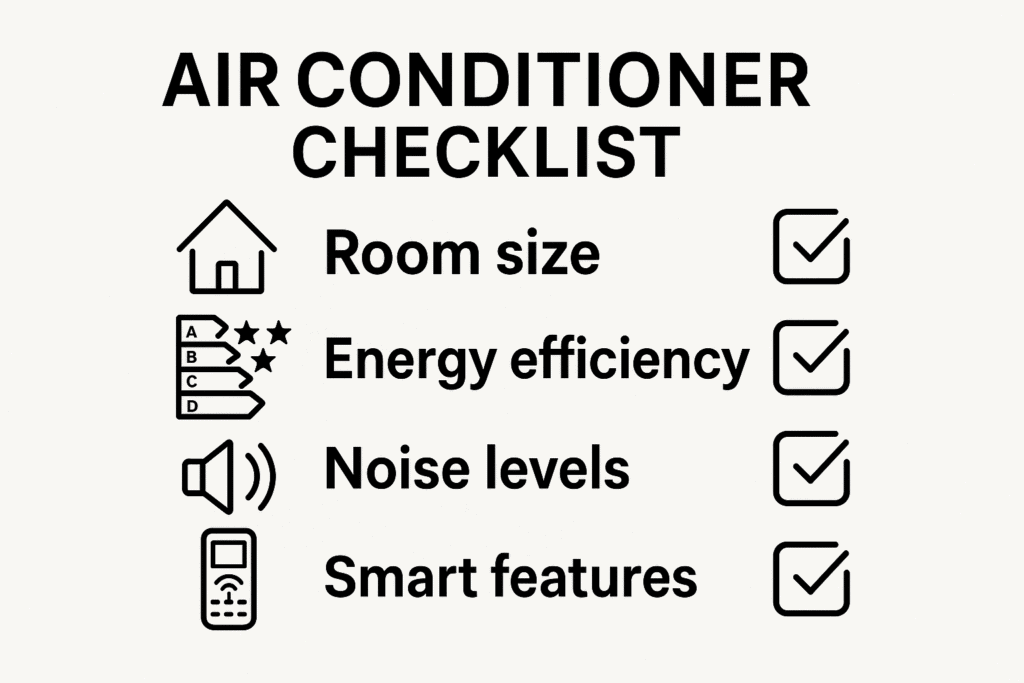
Choosing the right AC goes beyond just type—it’s about matching features with your needs.
1. Room Size and Cooling Capacity
AC power is measured in BTUs (British Thermal Units). General guideline:
Small room (100–300 sq. ft.): 5,000–7,000 BTU.
Medium room (300–600 sq. ft.): 8,000–12,000 BTU.
Large room (600–1,000 sq. ft.): 14,000–18,000 BTU.
Undersized ACs won’t cool effectively. Oversized ACs will cycle on/off too quickly, wasting energy and leaving humidity behind.
2. Energy Efficiency
Look for the ENERGY STAR label.
Higher SEER (Seasonal Energy Efficiency Ratio) = lower operating costs.
EER (Energy Efficiency Ratio) helps compare performance under fixed conditions.
👉 Efficient units may cost more upfront but save you money long-term.
3. Noise Levels
If the AC is for bedrooms, choose a unit with low dB rating.
Window and portable units are generally noisier than split ACs.
4. Extra Features
Modern ACs come with helpful features:
Inverter technology (runs at variable speeds, saves energy).
Dehumidifier mode (removes excess moisture).
Smart controls (remote/Wi-Fi operation).
Air purification filters (great for allergy sufferers).
👉 Prioritize features that matter to you rather than paying for extras you won’t use.
Sizing Your Air Conditioner: How to Get It Right
Selecting the right size air conditioner is crucial for achieving optimal performance and energy efficiency.
An undersized unit will struggle to cool your space, leading to increased energy consumption and wear and tear.
Conversely, an oversized unit will cycle on and off frequently, failing to dehumidify the air properly and resulting in an uncomfortable indoor environment.
To accurately size your air conditioner, you need to calculate the cooling load of your space.
This involves considering factors such as the room’s square footage, ceiling height, insulation, number of windows, and the amount of sunlight it receives. A common rule of thumb is to allow 20 BTUs (British Thermal Units) per square foot of living space.
However, this is a general guideline, and other factors should be taken into account for a precise calculation.
It’s often beneficial to consult with a professional HVAC technician to perform a detailed load calculation. They use specialized software and industry standards to determine the exact cooling requirements of your home.
This ensures that you select an appropriately sized unit that provides efficient and effective cooling, enhancing your comfort and extending the lifespan of your air conditioner.
Installation Tips for Your New Air Conditioner
Proper installation is key to maximizing the performance and lifespan of your new air conditioner.
Whether you’re installing a window unit, split system, or central air conditioner, following best practices ensures optimal efficiency and comfort.
For window air conditioners, make sure the unit is securely mounted and slightly tilted to allow for proper drainage. Use weather stripping or foam to seal any gaps around the unit to prevent air leaks and improve energy efficiency.
For split and central air conditioning systems, professional installation is highly recommended. A qualified HVAC technician will ensure that all components are correctly installed and connected, and that the refrigerant levels are properly adjusted.
Proper installation also involves checking the ductwork for leaks and ensuring that the thermostat is correctly placed to accurately measure indoor temperatures.
Regardless of the type of air conditioner, regular maintenance is essential for optimal performance. This includes cleaning or replacing filters, inspecting the coils and fins, and ensuring that the drainage system is functioning properly.
Scheduling annual maintenance with a professional HVAC technician can help identify and resolve potential issues before they become major problems, ensuring your air conditioner operates efficiently throughout its lifespan.
Maintenance and Care for Optimal Performance
Regular maintenance is crucial for keeping your air conditioner running efficiently and extending its lifespan. One of the most important aspects of maintenance is cleaning or replacing the air filters.
Dirty or clogged filters restrict airflow, reducing the unit’s efficiency and increasing energy consumption. Depending on the type of filter and usage, they should be cleaned or replaced every one to three months.
In addition to filter maintenance, it’s essential to inspect and clean the evaporator and condenser coils. Over time, these coils can accumulate dirt and debris, reducing their ability to absorb and release heat.
Cleaning the coils annually helps maintain optimal heat exchange efficiency. Also, check the fins on the coils for any damage and use a fin comb to straighten them if necessary.
Another critical maintenance task is ensuring that the condensate drain is clear of obstructions.
A clogged drain can cause water to back up and damage the unit or create excess humidity in your home. Regularly inspect the drain line and use a stiff wire or vacuum to remove any blockages.
By performing these routine maintenance tasks, you can ensure that your air conditioner operates at peak performance, providing reliable and efficient cooling for years to come.
Common Air Conditioner Problems and Solutions
Despite regular maintenance, air conditioners can still encounter issues that affect their performance.
One common problem is inadequate cooling, which can be caused by various factors such as low refrigerant levels, dirty coils, or a malfunctioning compressor.
If you notice that your air conditioner is not cooling effectively, check the filters and coils for dirt and debris, and ensure that the thermostat is set correctly. If the issue persists, it may be necessary to call a professional HVAC technician to diagnose and repair the problem.
Another frequent issue is water leakage, which can result from a clogged condensate drain, a damaged drain pan, or improper installation.
To address this problem, inspect the drain line and pan for blockages or damage and ensure that the unit is installed correctly with a slight tilt for proper drainage. If the leakage continues, seek professional assistance to identify and resolve the underlying cause.
Strange noises coming from your air conditioner can also indicate potential problems.
Rattling or banging sounds may be due to loose components or debris in the unit, while hissing or bubbling noises could signal a refrigerant leak.
Investigate the source of the noise and tighten any loose parts or remove debris as needed.
If the noise persists or if you suspect a refrigerant leak, contact a professional technician to perform a thorough inspection and repair.
Cost Considerations: Budgeting for Your Air Conditioner
Budgeting for a new air conditioner involves more than just the initial purchase price.
Several factors can influence the overall cost, including installation, maintenance, and operating expenses.
It’s essential to consider these aspects to make an informed decision that aligns with your financial situation and long-term goals.
The initial cost of an air conditioner can vary significantly based on the type, size, and brand.
Window units and portable air conditioners are typically more affordable, while split systems and central air conditioning units come with higher price tags.
However, more expensive models often offer better energy efficiency, advanced features, and longer lifespans, which can result in long-term savings.
Installation costs are another important consideration. Professional installation is recommended for split and central air conditioning systems, and the price can vary depending on the complexity of the installation and the condition of your existing ductwork.
Additionally, regular maintenance and potential repairs should be factored into your budget.
Investing in a high-quality, energy-efficient unit and scheduling routine maintenance can help minimize operating costs and extend the lifespan of your air conditioner, providing better value over time.
Some Top Air Conditioner Picks for You
Amazon Basics 5000-BTU Small Window Air Conditioner, Up to 150 Sqf, Window AC Units with Cool and Fan Functions, Washable Filter, Adjustable Window Kit, Intuitive Mechanical Controls, White
Frigidaire 5,000 BTU Window-Mounted Air Conditioner, Cools Up to 250 Sq. Ft., Quiet Operation, Effortless Temperature Control, 2 Fan Speeds, Auto Restart, White
Whynter Inverter Portable Air Conditioner 14,000 BTU with Dual Hose, Dehumidifier, Cooling Fan & Smart Wi-Fi for 600 Sq Ft Rooms, NEX ARC-1230WN (12,000 SACC), White
Midea 5,000 BTU EasyCool Small Window Air Conditioner – Cool up to 150 Sq. Ft. with Easy-to-Use Mechanical Controls and Reusable Filter, Perfect for Small Bedroom, Living Room, Home Office
3-in-1 Portable Air Conditioner with Built-in Dehumidifier Function,Fan Mode, Remote Control, Complete Window Mount Exhaust Kit
Portable Air Conditioner,8500 BTU Portable ac units up to 360 Sq.Ft,Portable ac units for Homeowner,Renter,family White
LG LW1224RD 12,000 Window Air Conditioner, 115V, 550 Sq.Ft. (22′ x 25′ Room Size), Quiet Operation, Electronic Control with Remote, 3 Cooling & Fan Speeds, Auto Restart, 12000 BTU, White
Also Read These Articles:
Grab Best Tech Deals Today – | Top Discounts
100 Best Amazon Finds Under $50: August 2025 Top Picks & Deal
Conclusion: Making the Best Choice for Your Comfort
Choosing the perfect air conditioner for your home is a significant decision that impacts your comfort, health, and finances.
By understanding the importance of air conditioning, exploring different types of units, and considering key factors such as energy efficiency, size, and features, you can make an informed choice that meets your needs and budget.
Evaluating energy efficiency ratings and sizing your air conditioner correctly are crucial steps in ensuring optimal performance and cost savings.
Proper installation and regular maintenance are essential for maximizing the efficiency and lifespan of your unit, while understanding common problems and solutions can help you address issues promptly and effectively.
Ultimately, investing in a high-quality air conditioner that suits your specific requirements will transform your home into a cool, comfortable oasis during the hottest months.
With the right knowledge and preparation, you can beat the heat and enjoy a refreshing indoor environment all summer long. Embrace the cool breeze and make the best choice for your comfort and well-being.
Stay Cool This Summer with the Right Air Conditioner
FAQs on How to Choose Air Conditioner for Home
What kind of AC would be better to buy for home use?
A split AC is usually best for home use as it is quiet, energy-efficient, and cools rooms effectively. For large homes, central AC may be better.
How many sq ft will a 3 ton AC cool?
A 3-ton AC can typically cool around 1,200–1,800 sq. ft., depending on insulation and sunlight exposure.
How do I know which air conditioner to buy?
Match the AC’s cooling capacity (BTU/ton) to your room size, check energy efficiency (SEER/EER or star rating), noise level, and features that suit your needs.
What is the 20 rule for air conditioners?
The 20 BTU per square foot rule means you need about 20 BTUs of cooling power for every sq. ft. of space you want to cool.
Which is better, 5 star AC or 3 star AC?
A 5-star AC is more energy-efficient and saves more on electricity bills in the long run, while a 3-star AC is cheaper upfront but consumes more power.
💡 Enjoyed this guide? If you found it helpful, don’t keep it to yourself—share it with friends and family who might also be looking for the perfect air conditioner.
We’d also love to hear from you—drop your thoughts, feedback, or kind words in the comments below.
And if you don’t want to miss more useful tips and guides like this, make sure to subscribe to our email newsletter for regular updates straight to your inbox!

𝐈’𝐦 𝐒𝐭𝐞𝐯𝐞 𝐇𝐨𝐮𝐠𝐚𝐧, the writer and researcher 𝐛𝐞𝐡𝐢𝐧𝐝 𝐔𝐒𝐀 𝐓𝐞𝐜𝐡 𝐃𝐞𝐚𝐥𝐬.
I help everyday users understand technology—𝐰𝐡𝐞𝐭𝐡𝐞𝐫 𝐢𝐭’𝐬 𝐜𝐡𝐨𝐨𝐬𝐢𝐧𝐠 𝐭𝐡𝐞 𝐫𝐢𝐠𝐡𝐭 𝐝𝐞𝐯𝐢𝐜𝐞, 𝐝𝐢𝐚𝐠𝐧𝐨𝐬𝐢𝐧𝐠 𝐩𝐞𝐫𝐟𝐨𝐫𝐦𝐚𝐧𝐜𝐞 𝐢𝐬𝐬𝐮𝐞𝐬, 𝐬𝐞𝐭𝐭𝐢𝐧𝐠 𝐮𝐩 𝐡𝐨𝐦𝐞-𝐨𝐟𝐟𝐢𝐜𝐞 𝐞𝐪𝐮𝐢𝐩𝐦𝐞𝐧𝐭, 𝐨𝐫 𝐬𝐨𝐥𝐯𝐢𝐧𝐠 𝐜𝐨𝐦𝐦𝐨𝐧 𝐭𝐞𝐜𝐡 𝐩𝐫𝐨𝐛𝐥𝐞𝐦𝐬.
My content blends deep research, expert-backed insights, and real user feedback to bring you clear, practical, and easy-to-follow guidance. 𝐈 𝐚𝐧𝐚𝐥𝐲𝐳𝐞 𝐩𝐫𝐨𝐝𝐮𝐜𝐭𝐬, 𝐜𝐨𝐦𝐩𝐚𝐫𝐞 𝐟𝐞𝐚𝐭𝐮𝐫𝐞𝐬, 𝐬𝐭𝐮𝐝𝐲 𝐭𝐞𝐜𝐡𝐧𝐢𝐜𝐚𝐥 𝐬𝐩𝐞𝐜𝐢𝐟𝐢𝐜𝐚𝐭𝐢𝐨𝐧𝐬, 𝐞𝐱𝐩𝐥𝐨𝐫𝐞 𝐭𝐫𝐨𝐮𝐛𝐥𝐞𝐬𝐡𝐨𝐨𝐭𝐢𝐧𝐠 𝐦𝐞𝐭𝐡𝐨𝐝𝐬, 𝐚𝐧𝐝 𝐛𝐫𝐞𝐚𝐤 𝐝𝐨𝐰𝐧 𝐜𝐨𝐦𝐩𝐥𝐞𝐱 𝐭𝐞𝐜𝐡 𝐭𝐨𝐩𝐢𝐜𝐬 𝐢𝐧𝐭𝐨 𝐬𝐢𝐦𝐩𝐥𝐞, 𝐚𝐜𝐭𝐢𝐨𝐧𝐚𝐛𝐥𝐞 𝐬𝐭𝐞𝐩𝐬.
𝐇𝐞𝐫𝐞 𝐨𝐧 𝐔𝐒𝐀 𝐓𝐞𝐜𝐡 𝐃𝐞𝐚𝐥𝐬, 𝐲𝐨𝐮’𝐥𝐥 𝐟𝐢𝐧𝐝:
Tech buying guides based on verified data and side-by-side comparisons
Product insights that highlight pros, cons, and real-world use cases
Step-by-step tutorials for fixing, optimizing, and understanding devices
Home-office and productivity setup advice
Educational articles that simplify complicated tech concepts
Video explanations featuring me as your on-screen tech guide
𝐌𝐲 𝐦𝐢𝐬𝐬𝐢𝐨𝐧 𝐢𝐬 𝐭𝐨 𝐡𝐞𝐥𝐩 𝐲𝐨𝐮 𝐦𝐚𝐤𝐞 𝐬𝐦𝐚𝐫𝐭𝐞𝐫 𝐝𝐞𝐜𝐢𝐬𝐢𝐨𝐧𝐬, 𝐚𝐯𝐨𝐢𝐝 𝐦𝐢𝐬𝐭𝐚𝐤𝐞𝐬, 𝐬𝐨𝐥𝐯𝐞 𝐩𝐫𝐨𝐛𝐥𝐞𝐦𝐬 𝐟𝐚𝐬𝐭𝐞𝐫, 𝐚𝐧𝐝 𝐠𝐞𝐭 𝐭𝐡𝐞 𝐦𝐨𝐬𝐭 𝐨𝐮𝐭 𝐨𝐟 𝐲𝐨𝐮𝐫 𝐝𝐞𝐯𝐢𝐜𝐞𝐬—𝐰𝐢𝐭𝐡𝐨𝐮𝐭 𝐜𝐨𝐧𝐟𝐮𝐬𝐢𝐨𝐧 𝐨𝐫 𝐨𝐯𝐞𝐫𝐰𝐡𝐞𝐥𝐦.
Stay connected for helpful guides, latest tech insights, and smart recommendations.
Follow us on: YouTube • Instagram • Facebook • X (Twitter) • LinkedIn • Pinterest • TikTok


